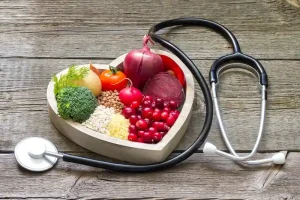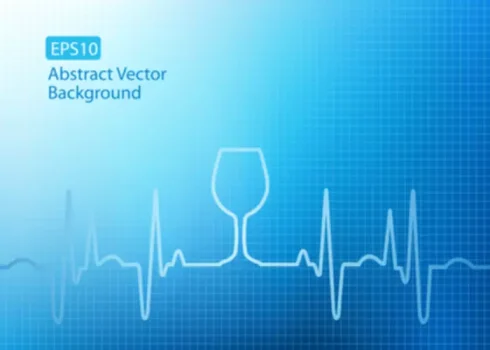
“Excessive alcohol consumption can cause nerve damage and irreversible forms of dementia,” Dr. Sengupta warns. If you drink every day, or almost every day, you might notice that you catch colds, does alchol thin your blood flu or other illnesses more frequently than people who don’t drink. That’s because alcohol can weaken your immune system, slow healing and make your body more susceptible to infection.
The Truth about Alcohol and Blood Thickness

Vascular wall oxidative stress also is a key mechanism in ethanol-induced HTN. Oxidative stress is an imbalance between production of free radicals and the body’s ability to detoxify or fight off their harmful effects through neutralization by antioxidants. Various studies with animals and humans indicate that ethanol can increase the development of reactive oxygen species (ROS), leading to increases in redox-signaling pathways and decreases in protective antioxidant levels. Alcohol also can increase levels of co-enzymes or reducing equivalents (e.g., reduced nicotinamide adenine dinucleotide phosphate [NADPH]), which lead to increases in ROS formation and decreases in eNOS activity (Ceron et al. 2014). Several excellent reviews offer more detailed assessments of vascular cellular mechanisms (Cahill and Redmond 2012; Husain et al. 2014; Marchi et al. 2014; Toda and Ayajiki 2010).
When can I expect my blood alcohol content (BAC) test results?
If you must drink alcohol while taking blood thinners, do so in moderation. A man’s blood typically thins if he drinks two (two ounces of liquor) or more daily. For moderate drinkers, the blood-thinning effects of alcohol are short-lived.
- Alcohol also reduces the “stickiness” factor of the platelets in your bloodstream, making it more difficult for your body to heal small to large wounds.
- In the man’s recent case, a genetic analysis confirmed that bacteria from a probiotic triggered his fatal infection.
- This can lead to conditions like stroke, amyotrophic lateral sclerosis (ALS), Alzheimer’s disease, and multiple sclerosis (MS).
- Serious complications are possible if your levels get into the 10,000 to 20,000 platelet range.
- A treatment center will attempt to verify your health insurance benefits and/or necessary authorizations on your behalf.
Hemostatic Factors
Alcohol use can damage the hippocampus, the part of your brain responsible for memory and learning. Some studies have found that even light or moderate drinking can lead to some deterioration of the hippocampus. From the first sip, alcohol impacts the body—even if you don’t realize it. Any amount of alcohol can diminish your judgment and functioning, and even low or moderate alcohol use can have harmful effects on different organs. A person needs to speak with a doctor about taking blood thinners safely.

When to contact a doctor
These risks can include liver disease, cardiovascular problems, compromised immune function, nutritional deficiencies, and mental health issues. It’s important to note that these risks can vary depending on individual factors such as genetics, overall health, and alcohol consumption patterns. The effect of alcoholic beverages on the lipid profile is attributed to their alcohol content. This was shown in a randomized, cross-over, clinical trial comparing the effects of moderate alcohol consumption (30 g/d) as gin or RW and their polyphenolic content and DRW on serum lipids of 73 male subjects at high risk of CVD. The mean adjusted LDL-C decreased 4.5% from baseline after RW and gin consumption, while HDL-C increased 7%from baseline during RW intake and 5% during gin intake compared with DRW. Red wine contains a substance called resveratrol, an antioxidant flavonoid that may lower bad cholesterol levels and thereby minimize the potential for blood clots.
As noted above, chronic alcohol exposure leads to a decrease in mTOR activity, which corresponds to increased markers of autophagy (Lang and Korzick 2014). The autophagy pathway also is rapidly upregulated during ATP depletion, mitochondrial dysfunction, and oxidative stress. Ethanol-mediated increases in autophagy therefore may be an important mechanism underlying the adverse myocardial effects of ethanol.
Why Does Alcohol Impact Cardiovascular Health
However, it’s never a good idea to use alcohol in place of your prescription blood thinners. Your doctor has prescribed you a very specific amount of medication based on specific factors they found in your blood. You have no chance of perfectly matching the effect of your prescribed medication, and this can be incredibly dangerous. An occasional drink or even moderate drinking throughout the week is okay. However, if you are physically dependent on alcohol or drink moderately, you should tell your doctor if they want to prescribe a blood thinner for a diagnosed medical condition. To understand the effects of alcohol on blood clotting, it’s important to first grasp how the process of blood clotting works and the impact that alcohol can have on this intricate mechanism.
- It is our hope that with increased awareness, more and more people will get help with their alcohol problems.
- Long-term alcohol consumption can have more significant effects on blood and overall health.
- If you or someone you know drinks alcohol, it is important to bring intention to the quantity that you consume, with knowledge of what is considered heavy or risky alcohol use.
- There, he teaches and works with cardiovascular and medical trainees as well as medical students.
Alcohol Consumption: Categories, Measurement, and Patterns

This review is based on the most relevant articles and studies performed in human subjects published no longer than 10 years ago. The keywords used for this search were alcohol consumption, hypertension, diabetes mellitus type 2, dyslipidemia, inflammation, oxidative stress, among others. The CDC publishes that excessive drinking contributed to around 90,000 deaths and shortened lifespan of an average of 30 years for those who died from alcohol consumption-related issues between 2006 and 2010.
Alcohol Usage and Blood Thinning
This can lead to conditions like stroke, amyotrophic lateral sclerosis (ALS), Alzheimer’s disease, and multiple sclerosis (MS). Your liver produces enzymes that break down alcohol, but your liver can only handle so much alcohol at one time (approximately 1 ounce per hour). The morning after a night of over-imbibing can cause some temporary effects on your brain. Things like trouble concentration, slow reflexes and sensitivity to bright lights and loud sounds are standard signs of a hangover, and evidence of alcohol’s effects on your brain. Pancreatitis can be a short-term (acute) condition that clears up in a few days. But prolonged alcohol abuse can lead to chronic (long-term) pancreatitis, which can be severe.
There also is desensitization of the mitochondrial permeability transition pore, which can mitigate ischemia–reperfusion injury (Walker et al. 2013). In addition, alcohol may attenuate ischemia–reperfusion injury by activating protein kinase C epsilon (PKCɛ) (Walker et al. 2013). Activation of PKCɛ may protect the myocardium against ischemia–reperfusion injury by stimulating the opening of mitochondrial ATP-sensitive potassium channels.
